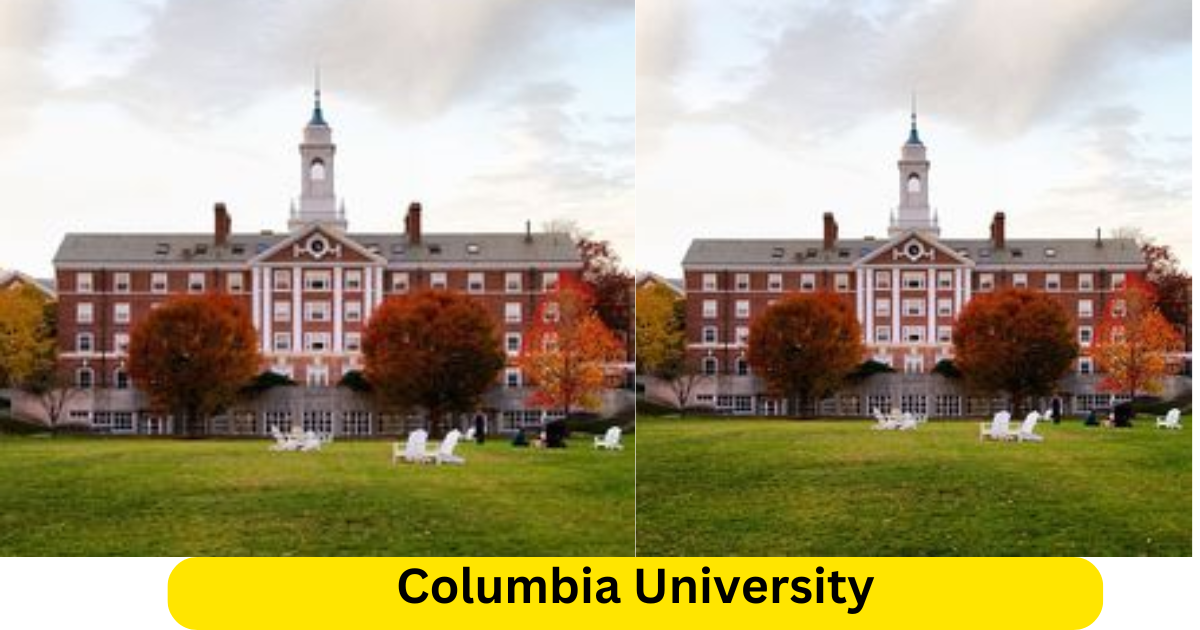Columbia University: A Legacy of Excellence and Innovation
Columbia University stands as one of the most prestigious institutions of higher learning in the world. Located in the heart of New York City, it has a rich history of academic excellence, groundbreaking research, and influential alumni. Established in 1754, Columbia has consistently ranked among the top universities globally. This article delves into the history, academic programs, notable alumni, and the overarching impact of Columbia University on education and society.
A Brief History of Columbia University
Founded as King’s College by royal charter of King George II of England, Columbia University is the oldest institution of higher education in New York and the fifth oldest in the United States. It was renamed Columbia College in 1784 following the American Revolution, and then Columbia University in 1896 as it expanded its academic offerings and mission.
Key Milestones in Columbia’s History
- 1754: Columbia is founded as King’s College.
- 1787: Alexander Hamilton and John Jay, two of the university’s most notable alumni, play pivotal roles in the founding of the United States.
- 1896: Renamed Columbia University, reflecting its broader mission.
- 1947: Columbia researchers John Bardeen, Walter Brattain, and William Shockley invent the transistor, earning a Nobel Prize in Physics.
Academic Excellence
Columbia University is renowned for its rigorous academic programs, distinguished faculty, and commitment to intellectual inquiry. The university offers a wide range of programs across various disciplines, fostering a collaborative and intellectually stimulating environment.
Undergraduate Education
Columbia’s undergraduate program is designed to provide a comprehensive liberal arts education, encouraging critical thinking and interdisciplinary studies. Key features include:
- Core Curriculum: A distinctive feature of the undergraduate experience, the Core Curriculum ensures that students gain a broad education in the humanities, social sciences, and natural sciences.
- Research Opportunities: Programs like the Columbia Undergraduate Scholars Program (CUSP) allow students to engage in independent research projects alongside faculty.
- Interdisciplinary Approach: The university encourages students to explore multiple fields of study, fostering a well-rounded education.
Graduate and Professional Education
Columbia’s graduate programs are equally prestigious, offering advanced degrees across a wide range of disciplines. Notable schools and departments include:
- Columbia Business School: Known for its MBA program and contributions to economic research and business leadership.
- Columbia Law School: Offering a rigorous legal education with a focus on interdisciplinary study and public service.
- Vagelos College of Physicians and Surgeons: A leader in medical education and research, advancing the frontiers of healthcare and biomedical science.
Research and Innovation
Columbia University is at the forefront of groundbreaking research and innovation. The university’s numerous research centers and institutes contribute significantly to advancements in various fields. Key research areas include:
- Neuroscience: Home to pioneering research in brain function and neurodegenerative diseases.
- Climate Science: The Lamont-Doherty Earth Observatory leads research in climate change, earth sciences, and sustainable development.
- Engineering: Known for contributions to materials science, nanotechnology, and data science.
Notable Alumni
Columbia University has produced a remarkable array of alumni who have made significant contributions to society in various fields. Some of the most distinguished include:
- Barack Obama: 44th President of the United States and Nobel Peace Prize laureate.
- Ruth Bader Ginsburg: Former Associate Justice of the Supreme Court of the United States and a champion of gender equality.
- Warren Buffett: Renowned investor, philanthropist, and CEO of Berkshire Hathaway.
Global Impact and Influence
Columbia University’s influence extends far beyond its New York City campus, impacting global education, policy, and innovation through its collaborative efforts and outreach programs.
Collaborations and Partnerships
Columbia actively collaborates with institutions worldwide to address global challenges and promote academic exchange. These partnerships include joint research initiatives, exchange programs, and international conferences.
Public Service and Outreach
Columbia is deeply committed to public service and community engagement. The university’s various outreach programs and initiatives aim to make a positive impact on society. Notable examples include:
- Columbia World Projects: Mobilizing the university’s resources to tackle pressing global issues like public health, social justice, and sustainability.
- Community Impact: Providing educational, social, and health services to underserved populations in New York City.
Admission Process and Requirements
Gaining admission to Columbia University is highly competitive, with an acceptance rate typically below 6%. Prospective students must demonstrate exceptional academic achievements, strong extracurricular involvement, and a compelling personal narrative.
Key Admission Requirements
- High School Transcript: Reflecting academic excellence in a rigorous course load.
- Standardized Test Scores: While Columbia has adopted a test-optional policy for recent admissions cycles, strong SAT or ACT scores can enhance an application.
- Extracurricular Activities: Demonstrating leadership, community service, and other significant involvements.
- Personal Essays: Offering insights into the applicant’s personality, values, and aspirations.
- Letters of Recommendation: Providing valuable perspectives from teachers, counselors, or mentors.
Conclusion
Columbia University stands as a beacon of intellectual rigor, innovation, and leadership in education and research. Its rich history, distinguished academic programs, and influential alumni make it a cornerstone of global advancement in various fields. As the university continues to evolve, its commitment to fostering a culture of inquiry and excellence remains unwavering.
